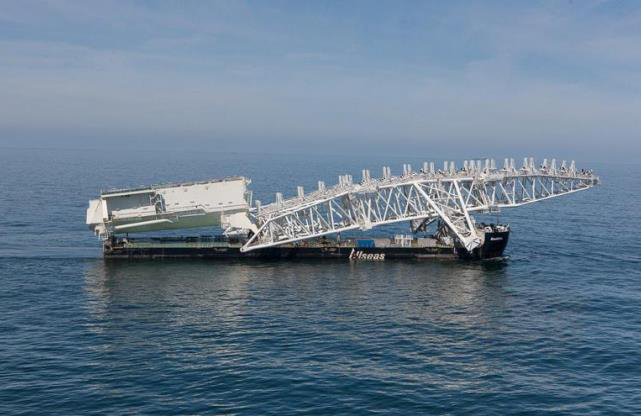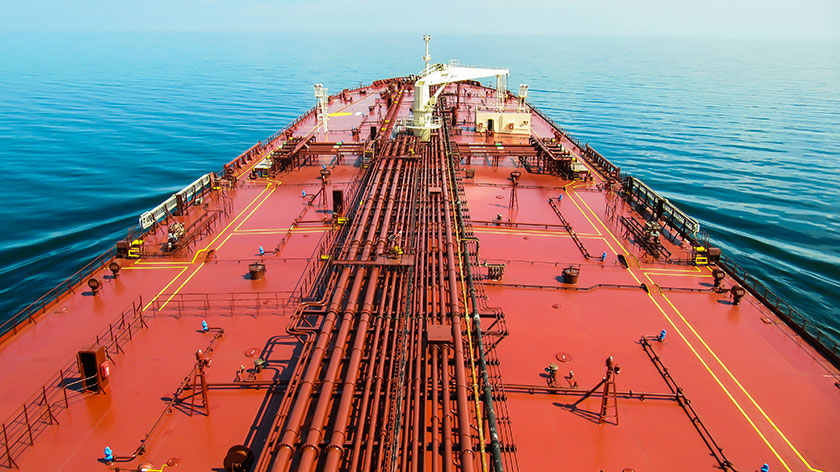Twój koszyk jest obecnie pusty!
Instead South Stream, we should invest in renewables. Quick Questions to Alexander Egit, Greenpeace CEE
I asked Alexander Egit about Greenpeace stance on South Stream. This organization is against such project, agrees that it undermines European energy security. But still, got thoroughly different argumentation than conventional energy supporters. Worth reading! How South Stream affects energy security – Austrian and European in general? Alexander Egit, Greenpeace Central Eastern Europe director: Austria…
 I asked Alexander Egit about Greenpeace stance on South Stream. This organization is against such project, agrees that it undermines European energy security. But still, got thoroughly different argumentation than conventional energy supporters. Worth reading!
I asked Alexander Egit about Greenpeace stance on South Stream. This organization is against such project, agrees that it undermines European energy security. But still, got thoroughly different argumentation than conventional energy supporters. Worth reading!
How South Stream affects energy security – Austrian and European in general?
Alexander Egit, Greenpeace Central Eastern Europe director: Austria is highly dependent from Russian energy, specifically on gas coming from Russian sources. About 60 % of the Austrian gas demand is imported from Russia. Although the numbers for EU are slightly lower (30%) it is obvious that the import dependency of the whole EU is enormous. In 2011, the EU spent 57 billion US dollar on the imports of Gas from Gazprom.
In June 2014 – in the midst of the Russian-Ukrainian struggle – the heads of States of the EU member states have decided to agree on a strategy to reduce the dependency. One of the main parts of this strategy is the planned reduction of imports of fossil energy from Russia. In the view of Greenpeace, this is clearly a chance to shift our energy system from dirty energy forms to a clean system that bases on clean renewable forms of energy.
Despite this direction that the EU is heading toward to, the Austrian government has decided to even strengthen its bonds with the Russian oligarchs. Whilst the Austrian mineral oil company OMV claims that the project will support energy security, it is obvious that it will only deepen the dependency of Austria on imports of fossil energy, and therewith on Russian capriciousness.
What is the alternative?
As said, Europe finds itself at the crossroads for its future energy system – it´s now the moment to decide, which energy forms should provide secure energy in the next decades and centuries. Will we continue to be dependent on dirty, climate affecting, expensive fossil energy or will we transform our energy system into a clean, sustainable and affordable one? Although we have to be clear that gas remains a bridge technology in the short term, future investments like South Stream will lock our dependency on fossil energy for many decades to come.
The Greenpeace Energy Revolution Scenario clearly shows that as of 2050, we can fully rely on clean renewable energy sources. But it is obvious that we have to take action now and invest into a new energy system, based on renewable energy such as wind, solar, water, biomass, and especially on energy efficiency rather than lock ourselves in backwards technologies.
Alternatively, Austria must play a key role for a transition of technology in the energy sector, namely to build up know-how. Especially eastern European countries and the Baltic States that depend to 100 per cent on Russian gas would benefit to an enormous extent. Poland for example imports about 80 percent of its gas from Russia, although the country has high potential for renewable energy, especially in the field of wind and solar energy. Still, today only 7 per cent of the energy demand of the country is covered by renewable energy sources.
What is the economic aspect of this issue?
Money is and will remain a scarce resource and every Euro can be spent only one time. Now, the OMV is planning to spend a huge amount of money into a backwards oriented project, namely South Stream. Only in Austria, 200 Million Euros will be invested into a project that is highly criticised by many players, such as the European Commission. We understand that other formerly involved countries, such as Bulgaria have declared to freeze the process until the European Commission has agreed on the project. All this said it is very likely that the process will be delayed and will cost more than the OMV calculates by now. In addition, I want to remind about the outcome of the Nabucco-pipeline project, which in the end turned out to be a billion-Euro-grave for OMV. The money that will be invested into South-Stream must instead be invested into clean energy and energy efficiency.
What is the political aspect of this issue?
Austria simply cannot afford to crisscross European strategies to a) reduce energy dependency and b) to isolate Russia politically. Whilst European leaders look into ways to sanction Russia for its activities in the Ukraine, Austria continues to chum up with Russia and its president. In my point of view these are dangerous developments. Instead, Austria needs to become a front-runner in the debate of energy security. Austria has high potentials in both renewable energy and energy efficiency and has therefore the responsibility to act as a role model for other European countries.
What are the next steps that Greenpeace would take to promote these theses?
At the European level, Greenpeace is calling for an Energy-Commissioner that is further advancing the debate of energy security. Some countries are pushing for such an agenda under the proposition of exploiting further “indigenous sources” such as shale gas or nuclear. Greenpeace clearly demands to develop strategies that build on the exploration of clean energy forms and energy efficiency. The European Parliament must therefore reject a Commissioner that is pushing for any fracking or nuclear agenda. At the national level we will continue to criticise these investments, pushing our decision makers to step back from the treaty.
Our conversation was also published in Polish, on BiznesAlert.pl portal





Leave a Reply